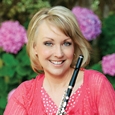Every one of us knows that practice is an integral part of life for a professional musician. For college students who are pursuing a performance degree it should be the most important focus of their life. However, at one time or another it can be difficult to summon up the motivation to head on into the practice room. When that feeling hits, it is important to remember some basic facts about why we need to practice even though we might want to do other things.
I have an inspirational card tacked up on my bulletin board that says, The courage that counts is the courage of every day. Most of life is putting one foot in front of the other. Big leaps have received too much press. It is the daily practice sessions that add up over a lifetime that shape and mold our musical destiny.
Practice can be about short term goals or long term projects, or perhaps a mix of both concepts. The saying the process is the product really is applicable here as it is the act of practicing that yields the progress no matter the goal at hand.
Jeanne Baxtresser said that musicians are considered “athletes of the small muscles.” That statement really is true; we train from an early age, and our training is continuous throughout our life, much like any athlete. I treat maintenance, as well as the advancement of skills, as a workout in my practice philosophy.
I divide practice sessions into several parts: warm-up, maintenance work, and literature. Literature consists of preparation for various orchestral programs, chamber music, and solo music depending on the demands of the given week. Each summer when I receive the symphony season schedule for the following year, I go through the list of repertory and assemble an excerpt schedule, so that I begin working on the most difficult pieces a little bit at a time during the summer, which typically has a lighter performance schedule than the fall-spring season. Because life is so busy and demanding, I rely on my preparation, and the earlier I start the better it is in the long run.
Early practice is like good insurance. We insure our cars just in case there is an accident so our investment is protected, and we can repair the damage without undue expense. Early practice is like insurance; the payoff in secure performance is there for you whenever you ask for it.
My warm up session usually begins with harmonics on the flute, and then I work into waking up my fingers with Taffanel/Gaubert #1 or#2. I may work on arpeggios from this book (#10, 11 and 12 are all favorites) and some scale work (either #4 from T/G or Moyse scales throughout the whole range of the flute). I play long tones/vibrato studies and then might work on trill studies for finger activation.
Maintenance practice should include some double/triple tonguing studies, and a few etudes. I love to include some sight-reading as part of a maintenance routine as well. Then I work on piccolo, warming up gradually from the bottom of the range, through some etudes in the middle register, and gradually all the way to the top of the range.
The most difficult part of practicing may be walking into the room and beginning. Once the mind is flowing and engaged, it is usually easy to keep working. Quiet your mind and remove distractions. In today’s world, this means silencing electronic devices. Checking texts, email, and Facebook every few minutes will pull you out of the productive zone.
Have all your tools ready to go: music stand, music, metronome, tuner, a pencil, a recording device to hear playbacks, and some water for a quick hydration break. Stretch and walk away from the stand every half hour or so just to keep the body loose and free. Try very hard not to watch the clock when you practice. For me, it is almost a meditative state that I slip into and time is not really something that I am aware of when I’m working.
I have always enjoyed practice because good preparation allows me to make better music. When physical skills are automatic, I become a better ensemble player because I am free of technical concerns and can listen. Interpretation, intonation and all the other visual cues you need as an orchestral musician can then be noticed more fully when you can listen outwardly as well as inwardly.
Sometimes students say they practice because they are afraid their teacher will be mad at them if they don’t. Instead they should think about how much better they will feel about their musicianship once they are prepared. A little fear can motivate, but in the end, serious students need more than this to fuel a lifetime of practice. It feels good to do your best. There is always more to learn, and it is exciting to keep growing. That path starts in the practice room. The bar is set very high for musicians. Take aim and give it your best shot.






